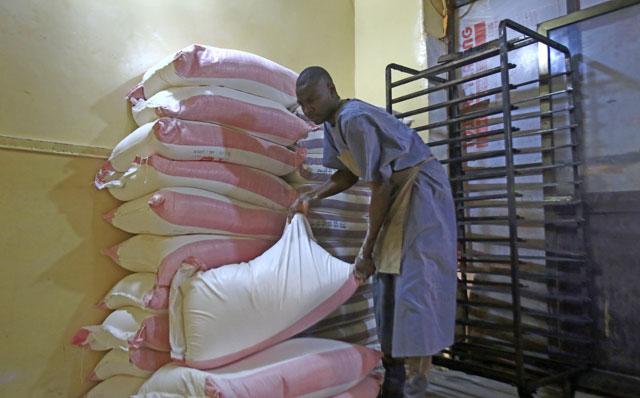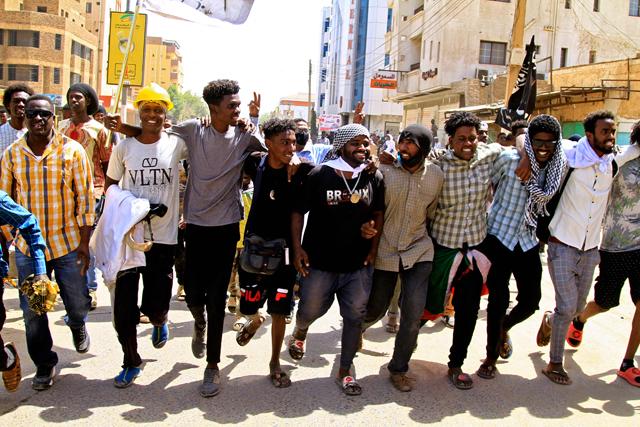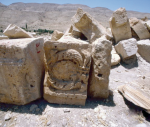You are here
Sudan bread protests spread, opposition leader detained
By Reuters - Jan 07,2018 - Last updated at Jan 07,2018

A Sudanese man carries a sac of flour at a bakery in the capital Khartoum on Friday (AFP photo)
KHARTOUM — Protests over rising bread prices broke out in Sudan’s capital and spread across cities to the south on Sunday, witnesses said, as authorities arrested a prominent opposition leader and confiscated newspapers in a drive to curb growing unrest.
The demonstrations followed a similar protest in the southeastern city of Sennar on Saturday, after bread prices doubled in recent days following a government announcement late last month that it was eliminating subsidies in its 2018 budget.
In the southeastern city of Al Damazin, police fired tear gas on Sunday as about 400 demonstrators chanted “No, no to price rises!” and some burned tyres, a local resident told Reuters.
The removal of subsidies is part of austerity measures as the country struggles in the face of inflation running at about 25 per cent and an acute shortage of hard currency that has sapped import activity.
Sudan has seen sporadic public protests in the past few years against austerity measures. In 2013, up to 185 people may have been killed, according to Amnesty International, during demonstrations against fuel price increases when thousands took to the streets.
Protests since then have been much smaller and the main opposition parties have called for peaceful demonstrations against the bread price hikes.
Protests spread to downtown Khartoum on Sunday as well as three cities to the south; the southwestern cities of Nyala and Geneina; as well as Al Damazin, residents in these areas told Reuters.
Authorities arrested Omar Al Dageir, the president of one of the country’s largest opposition groups, the Sudanese Congress Party, party members said. Authorities also blocked the sale of six daily newspapers carrying critical coverage of the subsidy cut and price rises, editors of the papers told Reuters.
The ministry of interior could not be reached for comment.
Sudan has begun a series of economic reforms in line with International Monetary Fund recommendations to try and get the economy back on track, months after a US decision to lift sanctions raised hopes that badly needed investment may return.
This month Sudan devalued its pound currency to 18 per US dollar, more than double its previous peg of 6.7 pounds to the dollar. The rate on the black market hit around 29 pounds to the dollar last week.
Related Articles
KHARTOUM — Bread shortages have hit Sudan, with wheat traders blaming a foreign currency crisis for shortages of the staple that have left p
KHARTOUM — Sudanese security forces opened fire Monday as protesters in several cities across the northeast African nation marched against m
KHARTOUM — Police fired tear gas on Saturday at groups of students protesting in a central Sudanese town against soaring bread prices, witne




















